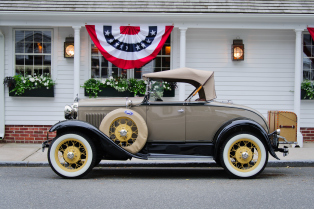Following Jack’s three men friends and his son as they carry his ashes to the sea at Margate to fulfill one final wish is as driven, surreal and overarchingly important as a salmon’s return up a twisted and turbulent river to its life starting point. The why of it is never quite clear to subjects, just like real life. Perhaps Jack’s friends, son and wife discover that nothing in life should go to waste, including one last opportunity to unite with friends and family in the only place that ever held any hope of romantic significance for him. Margate was his Shangri-La, his hope for his and Amy’s connection to each other, even at the end of an estranged lifetime.
Uncompromising in his use of ordinary thoughts and language by the ordinary people of Bermondsey, south London, Swift establishes his contract with the reader early and never lets him or her down.
It aint like your regular sort of day.
…begins Swift and continues with absolute, unblinking objectivity, and an unerring ear for the deceptive riches in thought and dialogue. At first, the similarity of voice between the characters – Jack Arthur Dodds’ understated, reticent butcher; Vince Dodds, his cagey son; Amy, his wife who chose their mentally disabled daughter, June, over her husband; Ray Johnson, his unreliable mate; Lenny Tate, his resentful Army buddy; Vic Tucker, his funeral director; and Mandy, the stray taken in by Vince – made following the changes in voice difficult to follow. I kept referring back to the chapter titles to see who was carrying the story forward. Soon, however, each character’s emotional process and relationship with the deceased rippled outward and overlapped other characters’ process and responses. Before long, cross currents became waypoints and I grew compelled by the journey and the back stories. Swift’s exploration of ordinary lives in this novel is extraordinarily skilled.
This quiet novel speaks volumes about the quiet lives of its ordinary middle-class south London characters. In doing so, it speaks to the rest of us.
Graham Swift’s interview in SALON
The Booker Prize, which is often a reliable guide to literary excellence, is what originally attracted me to LAST ORDERS.
Last Orders





